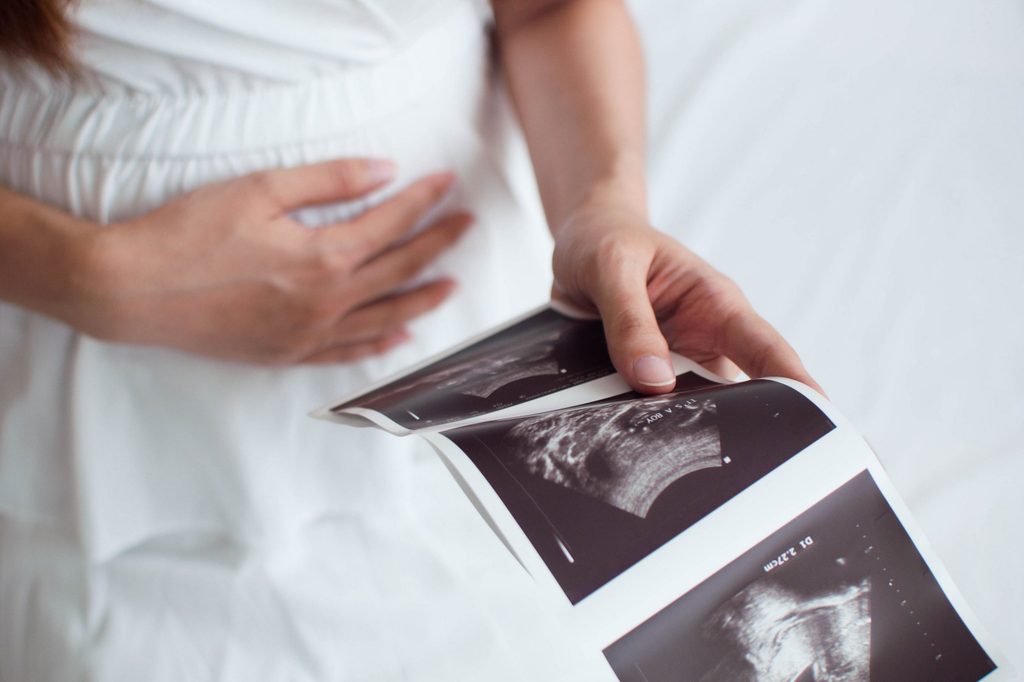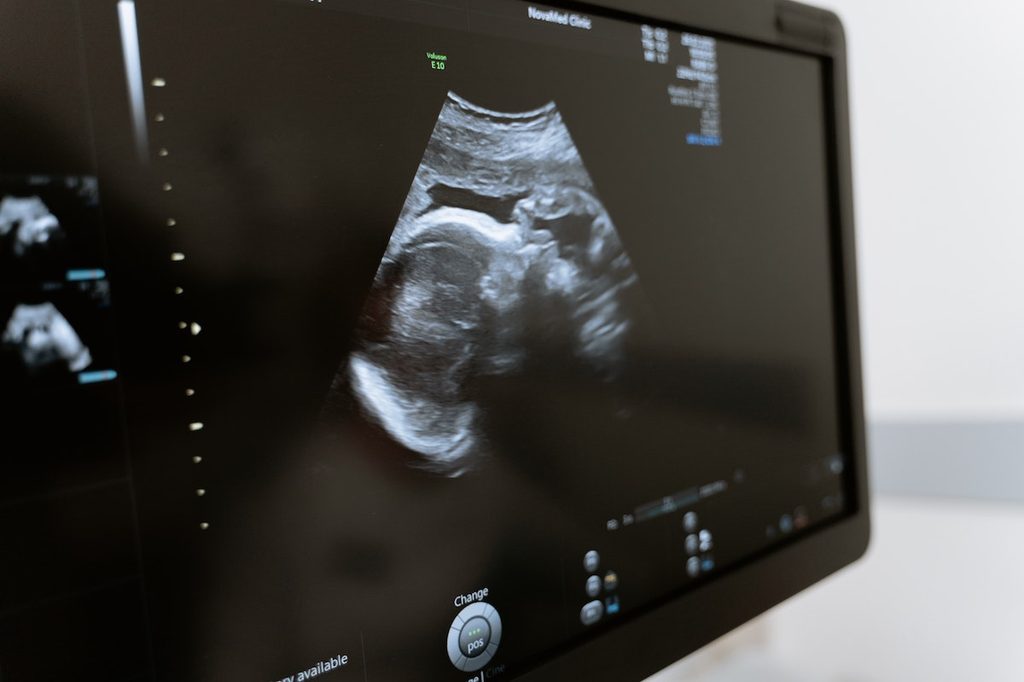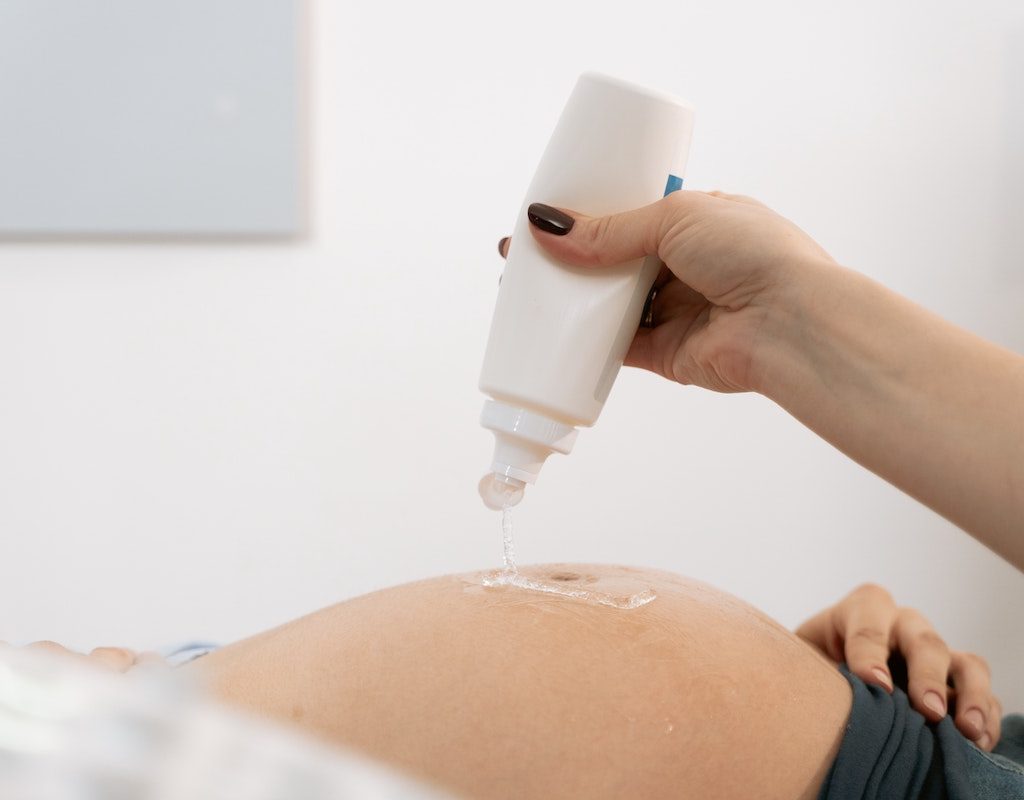
Pregnancy is such an exciting time for any expectant parent. One of the most exciting moments is going for an ultrasound when you finally get that first glimpse at your bundle of joy. As your baby grows, you’ll an ultrasound will allow you to see your baby as it develops. You may begin to notice facial features or even see your little one already sucking on their thumb or blowing bubbles. Those tiny feet kicking you? They’ll start to appear, too.
It’s amazing how quickly (but slowly) these soon-to-be humans develop. Your 8-week ultrasound may show a small blob-like photo, whereas an ultrasound done just a few weeks later will reveal a forming head and even cheekbones. As you progress in your pregnancy, you’ll see more and more development.
However, ultrasounds are also a chance for doctors to ensure the future little one is developing as they should. You already love your growing baby, and naturally, want to hear everything is smooth sailing. Learning more about what you’ll see and what a doctor looks for can help you feel informed and empowered during your pregnancy. Here’s what to know about ultrasounds.

What to expect at every ultrasound during pregnancy
Most pregnant people who conceive without assistance will have three to four ultrasounds throughout their pregnancy. Learn more about each, from the first ultrasound at 8 weeks pregnant to the one typically given around your estimated due date.
8-week ultrasound
Perhaps the only aspect of pregnancy that feels longer than the two-week wait between ovulation and when you can take an at-home test is the lead-up to the first ultrasound. If you learn you’re pregnant at approximately four weeks, around a missed period, doctors typically have you wait about a month before doing an ultrasound and bloodwork.
Typically, you’ll likely get your first glimpse of your developing baby during a 7-week ultrasound or 8-week ultrasound. You actually won’t even know whether it happened at seven or eight weeks until the doctor measures the fetus and gives you an estimated due date — one of a few tidbits you’ll learn during this ultrasound.
Doctors typically wait to do an ultrasound at 8 weeks pregnant because, even with modern technology, there’s not much to see in the early weeks of pregnancy. By seven to eight weeks, the ultrasound technician or doctor can see if the pregnancy is currently viable, rule out ectopic pregnancies (when the embryo implants in the fallopian tubes), and note a heartbeat — or heartbeats. You’ll learn whether you have a single or multiple pregnancy at your first ultrasound.
The fetus will usually look like a tiny blob with a tail or a seahorse, but that will change rapidly. This ultrasound is typically done transvaginally for a better picture.
Ultrasound at 12 weeks
At 12 weeks, the ultrasound technician or doctor can see the developing fetus through the abdominal wall. Expect to have some gooey gel placed on your stomach. Then, the tech will put a wand on your stomach. Take a look at the screen — you’ll see several new developments.
By 12 weeks, fetuses have a clearly developing head. You may even note your partner’s dimples (but you’ll need to wait a while to truly confirm that’s true). Ultrasounds at 12 weeks are exciting for another reason: They’re often the first time you hear the heartbeat — it’s music to your ears, especially if you’re nervous.
The technician will also measure the size of the clear tissue at the back of the developing baby’s neck. This screen is known as the nuchal translucency screening, one of the ways providers check for Down syndrome. You’ll undergo bloodwork at 12 weeks and around 16 weeks to further test for chromosomal issues.
20 weeks
Also known as the anatomy scan, the 20-week ultrasound is a highlight for many pregnant people and their partners (if applicable). This second-trimester scan is the longest. You’ll get a true inside look at your baby-to-be. The tech will point out their developing organs, like the heart and kidneys.
This ultrasound is also when you can find out the sex of the baby. If you have a reveal planned and want to be surprised or are team green (waiting until birth to find out), make sure the tech knows. They’ll tell you to look away.
36 weeks
Doctors typically order one final ultrasound around 36 weeks. This ultrasound is to check for growth. It’ll be the first time you hear about “percentiles” (a number you’ll hear a ton of at weigh-ins during your baby’s first year of life). A fetus in the 50th percentile is right in the middle. Being over and under the 50th percentile isn’t necessarily a cause for concern. However, your doctor may want additional monitoring or testing if your baby is below the 10th percentile or above the 90th percentile.
These measurements also are not always correct. A 2018 review showed that the accuracy of fetal weight has improved in recent years, but there are still inconsistencies.

Why you may need more ultrasounds
In some cases, a doctor may require more ultrasounds, including:
- You used assisted reproductive technology. If you conceived via IVF or IUI, your doctor will monitor you more closely, meaning a chance to see your baby-to-be graduate from embryo to fetus.
- Health issues during pregnancy. If you develop a condition, such as gestational diabetes, during pregnancy, you will need extra check-ins to ensure everything is going smoothly.
- The fetus measures large or small. A doctor will want to closely monitor fetuses that are LGA (large for gestational age) or IUGR (intrauterine growth restriction).

Is an 8-week ultrasound necessary?
If you’ve passed the 8-week mark in your pregnancy and your doctor hasn’t ordered an ultrasound for you, don’t worry. While some doctors will do an 8-week ultrasound to confirm the pregnancy, some healthcare providers will skip it. The International Society of Ultrasound in Obstetrics and Gynecology (ISUOG) recommends against early ultrasounds to simply confirm pregnancy and “in the absence of any clinical concerns, pathological symptoms or specific indications.” Instead, they suggest the first ultrasound should typically occur between 11 and 13 weeks gestation if there are no medical concerns. This allows the fetus to further develop before the examination.
Ultrasounds are a fun chance to meet your baby on the inside, but they also serve as an important way to monitor a pregnancy as it develops. The doctor will look for potential chromosomal issues throughout the pregnancy, monitor the baby’s heartbeat, and examine the organs. These scans are also a great chance for you to ask questions about what the doctor is looking for and how your baby is developing. They can be a nerve-wracking experience also. It’s natural to feel anxious, especially in the beginning, when you can’t feel the developing baby kicking constantly. Try to take a breath and remember you’re doing your best.



